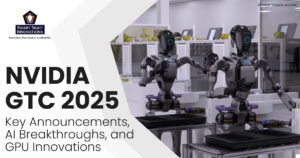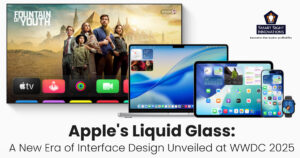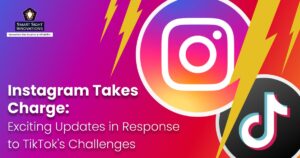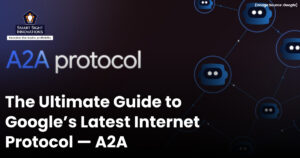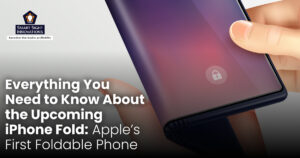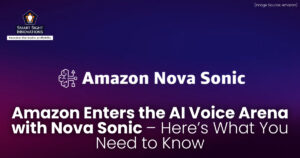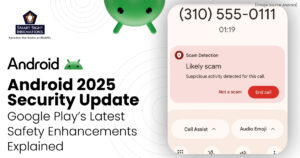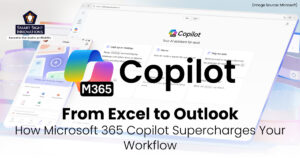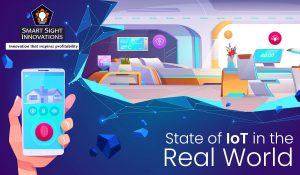 Synopsis: The Internet of Things (IoT) is a network of physical objects loaded with sensors, software and other technologies to connect and exchange data with other devices and systems over the internet. The goal is to have smart tools that self-report in real-time and bring in important information more quickly. IoT is abundant in manufacturing, transportation, health, agriculture, infrastructure and home automation industries, which has led to significant digital transformation.
Synopsis: The Internet of Things (IoT) is a network of physical objects loaded with sensors, software and other technologies to connect and exchange data with other devices and systems over the internet. The goal is to have smart tools that self-report in real-time and bring in important information more quickly. IoT is abundant in manufacturing, transportation, health, agriculture, infrastructure and home automation industries, which has led to significant digital transformation.
IoT devices can bridge the gap between the physical and digital worlds to improve quality and productivity in industries and lives. With self-driven cars, IoT retail shops, farming, wearables, smartwatches, fitness trackers, smart homes and more, IoT is here to stay.
All you need is a reliable IoT development company that can integrate sensors, gadgets, and devices to build an advanced IoT mobile app.
IoT in Healthcare
The global healthcare IoT market is projected to grow to $446 billion in 2028. Current medical research lacks important real-world information. It uses leftover data, a controlled environment, and volunteers for medical testing.
IoT opens the way to valuable data through analytics, real-time field data and testing. The collected data helps in personalized analysis of an individual’s health and provides tailored strategies to combat the disease.
In the healthcare industry, it is beneficial to patients, physicians, health organizations and insurance companies. Some benefits include:
- Creating an IoT-enabled virtual ward or hospital
- Early detection of disease
- Follow up on treatment plans
IoT in Retail
According to reports, the global market share of IoT is expected to reach $182 billion by 2028.
IoT has immense potential in the retail sector. Some of the factors contributing to this growth include customer demand for a seamless shopping experience and lower costs for IoT hardware and sensors. There are many benefits of Iot in retail industry.
The retail sector is using IoT for:
- A personalized experience in marketing and distribution
- Warehouse and inventory management
- Supply chain optimization
- In-store buyer behavior tracking
- The shipment tracking device
- Better store layout
- Placing premium products in high-traffic areas
IoT in Hospitality
It is about building a network of internet-connected digital devices. Such a system helps to enhance the guest experience and optimize expenses.
With IoT, hotels can automatically send a digital key to a guest’s mobile phone before check-in. This digital key can communicate with the door and eliminate the need for check-in at the reception.
The goal of IoT is to have more control over the environment. Options include:
- Controlling and automating various settings for lighting
- Control of the thermostat
- Enhanced safety and security with smart rooms
- Better maintenance procedures
- Maximum guest comfort
IoT in Finance
According to reports, the market share of IoT is expected to increase to US$ 2,030 million by 2023.
The banking industry is rapidly going digital to make the process more convenient for consumers. IoT is part of this rapid development in future banking. Consumers and financial institutions must adapt to these trends.
IoT helps finance companies save time and money by efficiently collecting and transferring data. It helps in automating core processes through efficient collection and processing of information.
It also helps financial institutions to improve their customer experience by:
- Real-time monitoring
- Personalized customer experience
- Collecting data about clients for investment potential.
- Enhanced security of transactions by artificial intelligence system
- Fraud detection
- Cardless transactions
IoT in Gardening
We need to keep our environment clean and healthy. For this, we can do gardening. Time and resources should not be a constraint and smart gardening can fill this gap.
With sensors installed in your garden, you can get all the information you need like temperature, soil conditions and humidity levels. You’ll also find tips on when to water your plants. You can manage your garden from your smartphone.
An IoT-enabled monitoring system is suitable in ways like:
- To check the soil condition
- Help to initiate better growth of the plant
- Help control water usage and water wastage
IoT in Agriculture
With the increasing world population, the demand for food supply has increased. Farmers need to use advanced technologies to keep up with the demands. One of the fastest-growing areas in IoT is smart farming.
IoT allows devices to remotely measure all types of data in a field and provide this information to the farmer in real-time. IoT devices can collect information such as chemical applications, soil moisture, dam levels, livestock health and weather.
Hence, farmers are making use of the meaningful insights from the data to get a better return on investment. Some simple uses of IoT include:
- Sensing for soil moisture and nutrients
- Controlling the use of water for plant growth
- Custom fertilizer determination
IoT for Pollution Control
Many cities have implemented smart air monitors to detect pollution levels in the air and of course, in the city. With IoT consulting, governments can take necessary steps soon after determining the pollution levels in several areas.
The IoT solution aims to monitor pollution levels present within cities using multiple IoT devices and attached sensors. The idea is to set up multiple stations in several areas of the cities. All these stations periodically upload information and send data to the IoT cloud.
This will help in:
- The management of water resources
- Reduction in energy expenditure
- Streamline data collection on traffic patterns
- Low gas consumption
IoT in Smart Homes
Imagine a home entirely connected via the internet to an app on a phone? It’s a reality now for many people. IoT apps are now associated with home appliances such as refrigerators, washers and dryers, cleaning systems, thermostats and entertainment systems.
These tools can be controlled remotely and send real-time information to the owners about the status of the equipment and its contents. The real IoT advantage is in smart security. IoT apps are linked to security devices and locks, eliminating the need for old locks and keys to enter our homes.
A smart lock can be configured to allow certain people to enter your home and alert you if someone tries to enter your home without authorization.
Plus, IoT security cameras give you real-time updates about people in and around your home. Contact a smart IoT software development company for solutions to control, monitor and protect your home.
IoT and Connected Cars
Focusing on optimizing the internal functions of vehicles is the core of automotive digital technology. Now, that focus is shifting more towards enhancing the in-car experience.
A connected car is a vehicle that is capable of performing its operation, maintaining and optimizing the comfort of passengers using onboard sensors and internet connectivity.
Automakers are working on connected car solutions. Tesla, BMW, Apple and Google are working on bringing about the next revolution in the automobile sector.
With actuators and sensors, this technology can help share information on:
- Traffic condition
- Road condition
- Weather
- Speed traps
- Avoiding accidents
- Fuel consumption
- Temperature monitoring
Bottom line
The Internet of Things brings many opportunities to businesses. If you want to find out how this technology can be helpful to your business, consulting with IoT experts can help. All you have to do is schedule a consultation and get answers to all your queries related to your business and the workable technology.
If you already know about the use of IoT for your business, discuss the next steps with one of the leading IoT development services.




